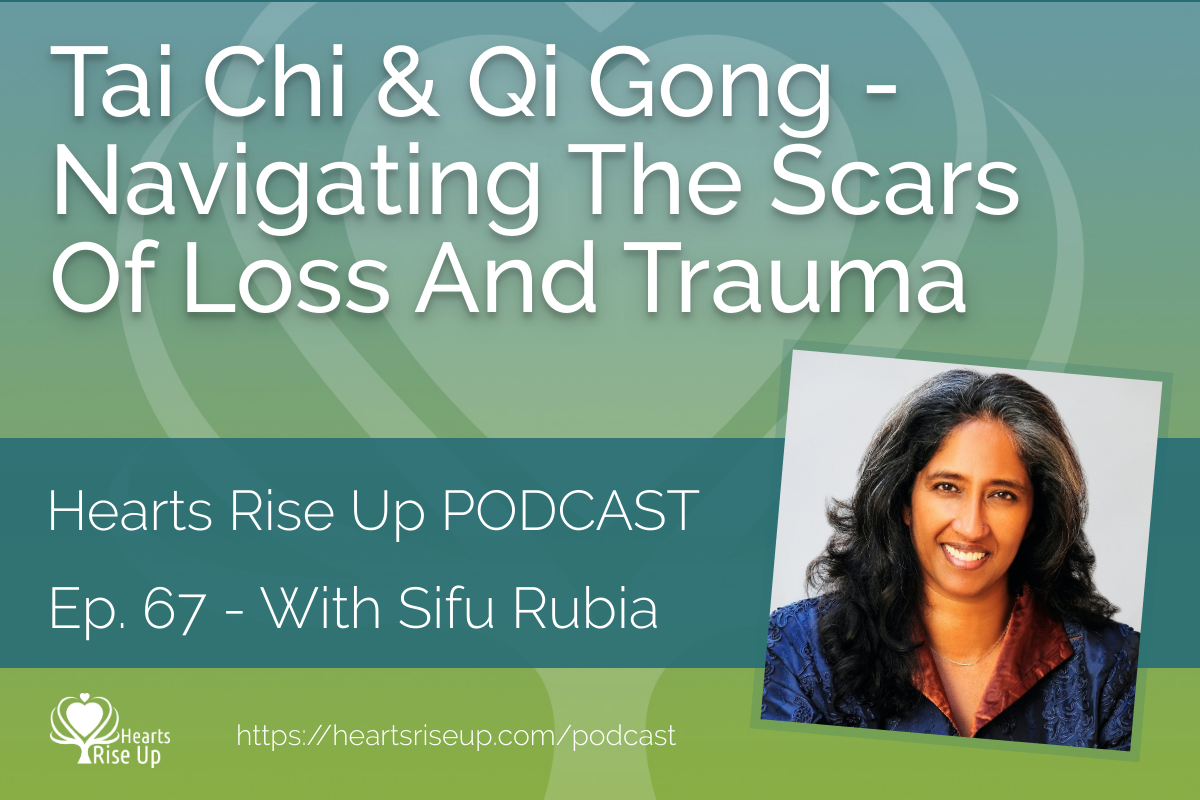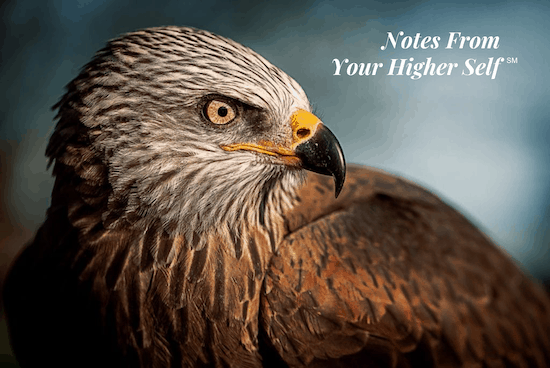Sifu Rubia discovered the benefits of the ancient healing arts of Tai Chi and Qi Gong as a way to navigate the scars of loss and trauma. An orphan born in Bangladesh, she experienced abandonment early in life, creating intense anxiety in her body and mind. Later in life, the traumatic loss of a miscarriage brought her to her first Qi Gong class. There she discovered the healing and strength-building power of this ancient tradition. Since then, she has accumulated hundreds of hours of teacher training, including Yang Family style Tai Chi, Yoga, and Iron Shirt Qi Gong.
With over a decade of teaching experience in community centers, drug and alcohol rehabilitation centers, private group classes, and speaking engagements at places such as the Oprah Winfrey Network offices in Los Angeles, Rubia has transformed hundreds of lives. She has given students the tools to maintain health, rejuvenate their bodies and recapture youthful energy and equanimity in their life. In addition, she has produced online courses through her website and company Wei Wu Tai Chi in the hopes to extend the reach of these ancient healing arts.
In this interview with Carol, Sifu shares the positive impact of learning the ancient practices of Tai Chi and Qi Gong to heal her traumas. Sifu is committed to sharing what she has experienced with others who have been through some of life’s traumas. Her message is clear – our intention and commitment to self, through movement and meditation, will raise our awareness and tune us into the body’s healing power.
Show Notes:
1. Trauma of abandonment and loss
2. Alchemy of movement
3. Building a strong body through Yoga
4. Life force practice of Qi Gong
5. Qi Gong, Tai Chi, & Yoga
6. Melding forms of healing
7. Importance of breath to movement
8. Crystalized emotion
9. Where do you hold your emotions
10. “Mirror time”
11. Experience your dimensional self
12. Breathe, slow down, commit to a practice
13. Find your “Energy Management System”
Social Media and Resources:
Offering:
Qi Gong Course – Live online – use code HRUQI to access at TaiChiWellness.Online
Book Mentioned:
The Four Agreements by Don Miguel Ruiz
Quote:
“It is through your body that you realize you are a spark of divinity.” – B.K.S. Iyengar
Support The Podcast
It takes a lot to produce a podcast of this quality. We would be grateful and honored to have your support!
Click Here to make a financial contribution.
Hearts Rise Up Production Team
Hearts Rise Up is a Feedspot “Best Wisdom Podcast”
Audio editing by: Ann Serrie
Technical Director: Christopher Drummond
Music by: Jonn Serrie
Are you interested in creating and hosting your own podcast? Check out our hosting platform bCast. We would be grateful if you would use our affiliate link. CLICK HERE for more info and to sign-up.
Show Transcript
00:00:04
(Carol Chapman) Okay, thank you for tuning your heart’s in for another episode of the Hearts Rise up podcast. I’m Carol Chapman, your host along with my co-host, Ann Serrie and Concetta Antonelli. We share our own personal experiences, tips and strategies along with powerful stories and compelling insights from guest interviews. We’re here to inspire and empower your conscious evolution, help you tap into your inner wisdom and rise to your heart centered higher self Together we can rise to a higher level of consciousness, an elevated state of being and experience more love, joy and freedom. Well, hello again and welcome back heart centered listeners. I’m carol chapman, thank you for coming back once again for another episode of the Hearts Rise Up podcast where you’ll always find heart based wisdom to inspire your conscious evolution.
00:01:21
(Carol Chapman) My featured guest today is Sifu Rubia. Sifu Rubia discovered the benefits of Tai Chi as a way to heal herself. An orphan born in Bangladesh. She has navigated the scars of deep loss and trauma, creating intense anxiety in her body and mind, including the traumatic loss of a miscarriage which brought her to her first child gong class where she discovered the healing and strength building power of this ancient tradition. Since then, she has accumulated hundreds of hours of teacher training, including yang family style Tai Chi yoga and iron shirt qigong with over a decade of teaching experience in community centers, drug and alcohol rehabilitation centers, private group classes and speaking engagements at places such as the Oprah Winfrey network offices in Los Angeles. Rubia has transformed hundreds of lives.
00:02:23
(Carol Chapman) She has given students the tools to maintain health, rejuvenate their bodies and recapture a youthful energy and equanimity in their life. She has produced online courses through her website and company. Wei Wu Tai Chi in the hopes to extend the reach of these ancient healing arts. Rubia, welcome to the show.
(Sifu Rubia) Hi, it’s nice to be here. Thank you for having me Carol. It’s really an honor. I’m happy to be here.
(Carol Chapman) It’s wonderful for you to be here. And I have personally taken your Tai Chi course and I must say that you have such a confident, calming, engaging style of teaching. I love your soothing voice and of course the choreography.
(Sufi Rubia) Thank you, I’m glad you took it.
(Carol Chapman) Yes, it was wonderful and it was a really nice introduction to Tai Chi. I’ve never done Tai Chi before and I definitely want us to delve into the work that you’re doing and the benefits of Tai Chi and she gone and how they connect to heart centered awareness, the opening of the heart and releasing trauma and stress.
00:03:32
(Carol Chapman) But first I would love for you to share your amazing story of challenge and opportunity that you went through in your life, to heal some of the deep loss and the trauma because, you know, none of us ever really escape trauma me included. We’ve all experienced it in various degrees and you have a story that I think others will appreciate and then can learn from you as to the experience that you had that lead you to the work that you’re doing today.
(Sufi Rubia) Well you said a lot of it in the bio. So my healing journey started from that moment of abandonment by my biological mother and you don’t realize that your nervous system is kind of set up for that trauma and that grief, it took me a long time to realize what was actually going on with me. So that’s where it kind of started. Yeah, the abandonment issues that come from there, the anxiety that my body held because of it and the triggers and all of that stuff.
00:04:37
(Sufi Rubia) So for me, as I was just growing up, I discovered that movement was a really nice way for me to navigate some of those emotions, so it’s very athletic and I like to be in motion. So that helped me, you know, kind of move some of that energy that, you know, not necessarily I even knew was being moved at the time, I can only say all of these things in hindsight, right? But if we speak to yoga practice and Tai Chi and Qi Gong and how all of those have kind of helped me Malcolm eyes those traumas, then yeah, we, I think that’s what we’re here to speak of today, right?
(Carol Chapman) Yes, as we kind of go through our discussion today, I’m sure that you can bring out points in your life as we’re talking about Tai Chi and Qi Gong and what the work that you’re doing, how it has helped to release certain emotional triggers for you over time. But I think it would be helpful to really understand the differences between Tai Chi and Qi Gong.
00:05:38
(Carol Chapman) And also I think yoga as well, because you’re well practiced in the art of yoga and those are all ancient practices, so it would be helpful to really understand the unique differences between them.
(Sufi Rubia) Sure. So, you know, I’m always just gonna be speaking from my point of view and my experience, that doesn’t mean that I hold you know, ultimate knowledge on any of these ancient practices, but I’ve been practicing yoga longer than Tai Chi and Qi Gong and I actually don’t teach yoga, even though I’ve done trainings and you know, I have developed yoga practice. I’ve mindfully not decided not to teach yoga just because it was, it’s my personal space to heal. My yoga practice is where I go to deal with myself. And when you teach what I know, and I think I’ve always known this that when you’re teaching something, you’re ultimately giving your practice away, you’re giving your pieces of yourself away
00:06:40
(Sufi Rubia) And I was just never ready to do that. But for whatever reason when I was doing my Tai Chi and Qi Gong practices and trainings. I didn’t have that same attachment to those practices, the bigger part of my healing, I think came when I was melding all three of them together and finding this really this beautiful internal flow in my body that was started with my yoga was kind of harnessed in my Qi Gong and just really bloomed with my Tai Chi practice. So all three of them are very important and they hold different spaces. So Coming back to what you were asking about the differences between the three. If we start with Qi Gong, Qi gong simply means well Qi means vital force, vital energy prana and the yogi language and gong means to cultivate, to work to you know to toil. So Qi Gong is you know, a prana, life force practice and discipline and there are many different styles forms, lineages.
00:07:51
(Sufi Rubia) It’s really a question of finding the one that suits you best. I work specifically with grounding Qi Gong practices. So they’re very rooting and you build a solid base for yourself in your energy body and then Tai Chi is a martial expression of your Qi Gong. So in simple form, that’s what Tai Chi is and someone who knows martial arts will know the martial applications will be very obvious. Otherwise you see Tai Chi being demonstrated in the park and it’s a very fluid movement exercise usually done in groups. So you don’t, you’re not necessarily looking at martial applications, but it’s more of an expression as moving meditation or a dance, you know a gentle dance. It’s multilayered and multifaceted and then the yoga has just always, it’s always a curious place, I’ve been doing it for over 20 years and it’s still it’s still some place where I go and I discover something.
00:09:03
(Sufi Rubia) It’s a place of discovery. I mean they all are, but that one specifically an Asana practice is really there to strengthen and align your body for deeper spiritual practices. And so it’s part of an eight limbs system. And Asana practice is just one of those limbs. It’s there to build, build a strong body essentially.
(Carol Chapman) And particularly since you’re well versed in what you’re, what you’re teaching, let’s just put it this way, the Tai Chi and Qi Gong. That’s really what you’re mostly focused on in terms of helping others. How do these ancient practices activate heart centered awareness and the opening of the heart? Because what I have found particularly in today’s world, a lot of people have a real hard time because sometimes there’s a lot of trauma that has rests in the heart and they really have a hard time opening the heart. Many people are walking around with a closed heart.
00:10:08
(Carol Chapman) So I think it would be helpful to understand a little bit more about these practices and how they benefit us and why it’s important to open the heart and have that heart-centered awareness.
(Sufi Rubia) That’s a great question and I love how it’s focused on your audience and your own mission. So yes, if we’re speaking of the heart chakra or the heart center or the heart meridians specifically my experience with it in a yoga practice a can, there’s you know, Asana’s, one of them is called fish pose, where you’re literally opening up your heart from very deep, deep place and it can be a little jarring, it can be pretty intense. Whereas in my experience, anytime I do too much yoga with heart-opening Asana, I end up crying a lot. Like I’m just to open that can create another whole other issue when you walk through the world with, with that kind of open heart. But what I found with Tai Chi and Qi Gong is that the same physicality with certain movements open the heart center and the heart line and heart meridian in a much more gentle way.
00:11:24
(Sufi Rubia) Again, this is based on my experience. That’s not to say that’s going to happen for everybody. It’s really, I’m just sharing with you how it’s affected my experience. So Tai Chi is just been a softer way to, to fall into a heart-opening space. It’s just been gentler for me based on the movements with the arms flowing gently, there are certain Qi Gong movements where you’re opening up your arms in a horizontal line, like wide open as if you’re about to hug someone. So it’s just gentler, it’s just a gentler way to keep your heart open and because we sit a lot and we’re hunched over our desks and were not made to live the way that we’re living right now. So these practices are important to keep those lines open and not close us off to the world around us or even, you know, internally to ourselves and going against ourselves. So these practices are definitely they’re beautiful practices in keeping your body more fluid and more open and receptive.
00:12:31
(Carol Chapman) So how did they activate healing based on your experience in your body and your mind and even your heart? I mean, how do they activate that.
(Sufi Rubia) breath to movement anytime you’re linking your breath to movement.
And that’s with any given discipline, You know, swimming, basketball, like the all of these athletes have the mastery of their breath to movement to be able to sustain, you know, the physical demands of what they’re doing. I mean, they’re not necessarily in a therapeutic setting, although, you know, the sports is therapy for many people, but the healing aspect in soothing the nervous system is really linking the breath two gentle mindful movement. And it’s really it’s the synergy of all of it happening together and the repetition. So that’s where we get into the physical healing.
00:13:32
(Sufi Rubia) But if you understand that your body, your body is basically crystalized emotion and that you’re kind of chipping away through the physical body at the emotional distress, then you’re bringing it all together in a in a holistic approach to healing the mind. The body and the spirit, the spirit is taking on the responsibility of developing an ethical practice, you know, in your daily endeavors, whatever that means to you through religion through volunteer work and generous practices and giving and offering and all of that. So that’s the spiritual process. But we’re addressing the well, we can address all of it. We’re right now, we’re talking about the physical part, Right?
(Carol Chapman) What else would you like to share with respect to that interesting term that use crystallized emotion. Maybe we can talk a little bit more about that and how it releases that and maybe even transforms it.
00:14:32
(Sufi Rubia) I feel that you have to approach these technologies and modalities with intention. You can move to move for the sake of moving and you’ll benefit from, you know, from the movement. You know, you do an hour class and you moved for an hour and there’s a benefit there. But if you know internally that you’re dealing with some stuff, then it’s locating it in your body with mindfulness, gentleness, self-compassion and allowing the movement and the breath to become the tool by which your healing that within that that physical space. So some people hold their emotions and their hips and their bellies, you know, in their chest and their shoulders. You know, like we have the warnings the warnings are there. So it’s really taking the time to acknowledge something’s going on. And then mindfully peeling back the layers of the stagnation or the points of tension.
00:15:43
(Sufi Rubia) Again, Still, in my experience, I think yoga creates more tension than release for me. For whatever reason, it’s really through my Tai Chi practice and Qi Gong practice that I find it’s a gentler place to release the tension.
(Carol Chapman) Yeah, I was going to say softer, a little bit softer, more gentle. Whereas yoga is a bit more rigorous.
(Sufi Rubia) If you have a Vinyasa practice, even yin practice yin yoga is very intense. Yes, you’re going deeper into the connective tissue and you’re holding these Asanas for a longer period of time and they’re useful. It’s useful. Again, I don’t shy away from yoga, it’s just I don’t know, Tai Chi is a gentler place to start if you’re on a healing journey.
(Carol Chapman) How did it heal you? Or let’s put it this way, I don’t think we’re ever fully healed. How has the healing occurred for you as a result of these practices?
00:16:47
(Carol Chapman) Number one and number two, how has it changed your perception of yourself and the world?
(Sufi Rubia) Those are two big questions. You might have to repeat the second one. Let me address the 1st Yeah. Again, coming back to mindfulness, I wanted to hell, I knew there was something, you know when you’re when you’re dealing with trauma, you are often find yourself in a reactive state because you’re protecting yourself. So it’s transcending that reaction in your body and again, the Tai Chi practice and the Qi Gong practice when you first start, it’ll activate it, it’ll trigger those responses, but then you breathe through it. What it has done is that it’s created a soft place for me to work on those triggers and because I’ve created that mindfulness and awareness in your breath and in your body in these moments of being triggered, I know how to breathe through it, how to pause in order how to slow down and become less reactive to the situation at hand.
00:18:06
(Sufi Rubia) So in that sense, it just soothes the body in the moment of a reactive situation. So that’s one way and I think the most important way that it’s helped me, it’s an energy management system. That’s one way I put it, is learn how to manage your energy and tap into a different way of existing and moving through the world. And again, when you’re dealing with trauma, you’re dealing with very reactive behavior. Yeah, I’ve done some psychotherapy and that hasn’t always helped for me, moving meditation, moving mindfully has been my therapy.
(Carol Chapman) And that second question was how has it changed your perception of yourself and the world around you?
(Sufi Rubia) When you start moving through the world differently because of these practices. I think this is a place where I would add that I’ve recently started studying astrology and you and I we’ve spoken about that off mike and I feel that even with the decades of these physical practice is the practice of reading the sky and understanding the archetypes of planets and planetary alignments and transits.
00:19:27
(Sufi Rubia) Understanding that in addition to having that body cosmic connection has made me a much more compassionate person in dealing with people and dealing with the chaos that is our humanity essentially. So it’s cultivated more compassion. So it’s a combination of all of it. And it’s only because I’ve been doing it for a long period of time with the discipline, with the repetition, with the willingness to move through the world in a different way, with less aggression. Again, another thing that trauma ignites his aggression, I walked through the world very angry for a long, long time and not all the time. But, you know, there are certain situations that just triggered, you know, a rise of anger and I just I just didn’t want to do that anymore. So when you don’t want to do something anymore, you look for what what’s the, what’s the alternative to that?
00:20:31
(Sufi Rubia) So, you look to peaceful practices meditation again, Movement. But I wanted to do it. So it starts with the desire for change and the desire to transcend the circumstances, right? So, those were the circumstances of my life and that those were the challenges that were given to me without my permission. Right? I didn’t ask for this and trauma will do that to you, that you’re like, well, I didn’t ask for this. Why are you impressing me with that, that belongs to you? So it’s separating yourself from that and the laws of non-attachment. I’ve read a lot of books. So, you know, The Four Agreements is a really beautiful book to understand, you know, your place in the world and the relationship that you hold towards others and vice versa. It just comes back to me for you have to want to do it and commit to the practice. Commit to yourself, commit to your healing. That in itself is very difficult, especially when you’re hardwired for self-destruction, which is, you know, I feel like in many ways I was hardwired for that and I had to go against that to find something different or at least create something different for myself.
00:21:54
(Sufi Rubia) It’s ongoing. You find systems to help you manage.
(Carol Chapman) That is true. I have to admit my go to system has been meditation which has really helped me to become more aware of, you know, certain aspects of myself that were triggered because of trauma in my life. And it’s a way of processing it and calming the mind and moving beyond it. And it really is a matter of just finding the right practice for you that is going to fit your nature for what you need at any given point in time. Because sometimes we even moved through different practices, You know, even different meditation practices. You know, you started out with yoga, but you have really gravitated more towards Tai Chi and Qi Gong for the work that you’re doing with others and you’re getting the benefit of all three of them just in different ways. It’s interesting how these kinds of practices can help us become more mindful and aware of ourselves, not just what’s going on emotionally and mentally, but also what’s happening in the body.
00:23:07
(Carol Chapman) Because all of that builds up in the body and if we don’t find ways to release it, I think that’s really, in many respects, is occurring within the world. More people were to be involved in practicing some of these ancient practices. We might have a gentler kinder world today. That’s not really the case at the moment.
(Sufia Rubia) No, but what’s happening is necessary also, you know, you need to burn everything down to rise again. There are Hindu philosophies and you see it even in cosmology, all of the cycles of humanity, the cycles of planetary alignments and all of that stuff. I mean, I don’t want to necessarily get into all of that. But what we’re seeing is not unusual. We’re in the phase of humanity. That is, we’re right on time, I guess, destroying ourselves. We’re right on time and destroying the narcissism, the greed, the need for materialism, all of that is being burnt to the ground or it’s being brought to the front, but it’s also being burnt down at the same time.
00:24:20
(Sufi Rubia) We’re not going to see it fully diminish in our lifetime. We’re going to see a process. We’re going to see the beginning of the transcendence of all of that. And the alchemy. And it’s our responsibility to do this work. Mm hmm. I mean, I would say google Kali Yuga, you know, I don’t want to speak out of pocket, but the information is out there. Google Kali Yuga. Kali Yuga—the Hindu speak of, you know, the four major cycles of humanity. And so we’re in the last one. We’re in the fourth one, which is self-destruction. And before we go back to the top to them.
(Carol Chapman) Rebirth.
(Sufi Rubia) Yes, exactly, exactly. I mean, it’s not pleasant. It’s not pleasant to watch. It’s not pleasant to be connected to. But you have to also consider its necessity to move forward. And until then do your work, do your part to heal yourself because we are ultimately responsible for our own healing.
00:25:23
(Sufi Rubia) And it’s in that healing that we expand that outward. So it starts small, it starts within your own family. It starts with yourself, your own family, your own lineage, your community. And then, you know, everything expands outward from you. So start there.
(Carol Chapman) What’s the biggest lesson that you’ve learned about yourself.
(Sufi Rubia) I think I’m still learning. I don’t think I’ve learned the biggest one yet. I don’t know. That’s a big question carol. I don’t know that it’s about myself, but the biggest lesson that I’ve learned is that everything is it’s an illusion. First of all, everything is an illusion. And the biggest gift is experiencing my dimensional self. I’ve experienced myself dimensionally. Which that shapes you. That definitely that’s an experience that changes you forever. And when you go through that I think you move through life differently more mindfully more purposefully and with a lot more clarity.
(Carol Chapman) Don’t always believe what you see and question what you believe.
00:26:26
(Carol Chapman) Always, Always, always. And I think that that’s really interesting that then we can save that for another conversation. But life is an illusion in many respects. Everything that was experiencing, thinking, feeling, seeing and what we believe is affected by actually you know what we believe?
(Sufi Rubia) We’re limited. We’re limited with the five senses and that’s fine. That’s the experience of being here on this planet and this body. We’re here to experience those senses. But those senses are limited. And it’s through meditation and discipline. It’s through discipline practice that you experience something else. Again, it’s only through practice that this what I shared with. You didn’t happen overnight, right?
(Carol Chapman) No, it doesn’t even what I have gained through my meditation has been years and years and years of meditating for most people.
00:27:30
(Carol Chapman) That really is the way it is. It’s a process of unfoldment. It’s a process oven peeling all these layers, these heavy layers. And once we peel them, we’ve become a little lighter and in some respects we find some things that we don’t really like about ourselves that we have to.
(Sufi Rubia) Oh yeah, You have to go through that too.
You have to take a long hard looks and some serious mirror time. But that’s what I love about Tai Chi is that it will always meet you where you are. It’s a discovery process. And when you approach it, I would hope that people would approach it that way that you walk into a class or you start your courses or what not and that you approach it with the eyes of a child in the eyes of a beginner and excitement and discovery. And okay, I want to discover something new today. I want to feel something new today. And it requires you to be in the present moment at every single moment. So, that’s another gift of when you’re dealing with anxiety separate from trauma.
00:28:35
(Sufi Rubia) Sometimes you’re in your head a lot where you’re overthinking and you’re projecting you’re thinking back so you fluctuate between anxiety for the future and depression of the past. And so when you have these places where you can kind of settle into, you don’t want to be anywhere else. Once you discover certain sensations and certain feelings and realizations, small things at a time. It’s not an effort to practice. It’s not an effort to be disciplined. It’s a place where you’ve committed for yourself, allow that to happen.
(Carol Chapman) Yes. And it’s a place where you feel and experience the benefits and because of that, it encourages you to want more of it. Because it fuels and fills the soul and the heart with the mending that it needs.
(Carol Chapman) I would love to know what you’re most grateful for right now.
(Sufi Rubia) The air in my lungs, for whatever reason, I’m always grateful for the air in my lungs.
00:29:41
(Sufi Rubia) The gift of sight, I think seeing color is really is a gift, wonderful, grateful for you in this moment.
(Carol Chapman) Yes, me too. Tell us a little bit about your future endeavors and the online courses that you’re offering.
(Sufi Rubia) Sure, thank you for the opportunity for me to share that. But right now I’ve produced a Qi Gong course, a full Qi Gong course, a short Qi Gong set that I’m offering for free and I’ll speak to that more in a second and a Tai Chi fundamentals course. So all of those are live online. I’m currently working on producing an intermediate Tai Chi course to the one that’s already up there, Tai Chi fundamentals, which is the one you experienced and working on bridging Qi Gong with the yamas and the yamas. So bringing my Yogi and my Tai Chi practice together, which is really beautiful.
00:30:45
(Sufi Rubia) So we’re working on that and I spoke of astrology earlier. So, I’m trying to speak to astrology, transits, planets and archetypes and, you know, helping people navigate through their birth charts, we go through different things at different phases in our lives and you can always link them back to planetary alignments. So, movement for those things and the house systems and stuff like that. So, working on that, circling back to the courses that are available and I’d like to offer this to your listeners today. There’s a short Qi Gong for grounding course that I’m making available for free. The website is Tai Chi wellness dot online. So T A I C H I I W E L L N E S S dot online. And you can find the short Qi Gong series for grounding and use V. I. P code: HRUQI
00:31:48
(Sufi Rubia) Okay, so for your audience and HRUQI. That course and they’ll get 100% off,
(Carol Chapman) Wow, that is so generous of you.
(Sufi Rubia) And I’ve also just started last week, I’m offering a sliding scale, so I’m trying to make it as easy and accessible for everyone out there. You’ll see that on the website.
(Carol Chapman) We’ll be sure to include all of this in our show notes, all the details. Any anything else that you’d like to share just in terms of your future endeavors?
(Sufi Rubia) There’s always something on the burner. But right now I definitely encourage people to try the Qi Gong. It’s a beautiful short practice for the morning to get you grounded. There’s some tapping in there and then the Tai Chi class, you know, the Tai Chi course. Again, it’s available on the sliding scale if you’ve ever wanted to learn Tai Chi, It’s a beautiful introduction to it, you know, getting into activating the waist, you know, learning how to move and step in that fluid motion that you see.
00:32:53
(Sufi Rubia) And I think there are eight minutes long, the little chapters. If you’re restricted with time, you can take one module at a time and they all build on each other.
(Carol Chapman) So that’s kind of how I did it. I carved out some time for some of those modules and then I had to go back to them.
(Sufi Rubia) Once you have access to the portal, then you’re in.
(Carol Chapman) Before we wrap up one final question. Do you have any words of advice or just insight for others that you’d like to share on their journey?
(Sufi Rubia) I can share other people’s wisdom. I mean I have quote, I look at every day and then one of them is from BKS Iyengar and he says “it is through your body that you realize you’re a spark of divinity,” explore your body in new ways, explore movement in new ways and those sparks of your divinity will come through somebody else’s advice. I don’t, I’m not really good with that awesome.
(Carol Chapman) Well I know that you’re a fabulous teacher because I’ve experienced your online courses firsthand and I want to thank you so much for joining me today Rubia.
00:34:02
(Carol Chapman) Been a pleasure and I wish you well as you move forward on your continued journey.
(Sufi Rubia) Thank you carol. It’s been an honor to meet you and I know that we’re going to keep in touch. I’m grateful for the friendship that you’ve extended and this opportunity to share. Thank you.
(Carol Chapman) Well, feelings are mutual and so thank you so much. And I just want to say to all of you listeners out there, I encourage you to definitely check out Rubia’s site. You have some fabulous courses there and certainly that free offer is available to you. And I just want to thank you for joining us today and listening in until next time. Just keep rising up. Bye for now.
(Carol Chapman) We hope today’s show helped to bring a bit more joy and happiness into your heart. We hope it inspired you to unleash your inner power and rise up to your best and loving heart centered, highest self. We’d be grateful if you’d leave us a review on itunes. Those reviews are important to spreading this valuable message.
00:35:14
(Carol Chapman) We’d love for you to subscribe to our podcast and share the show with others. Visit hearts rise up dot com for heart-centered courses, guided meditations and are popular notes from your higher self until next time. Keep rising up and may all that you love thrive.










0 Comments